September 26 is Presidential Debate Day
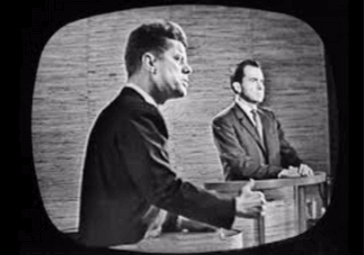 Today is Presidential Debate Day. It commemorates the first televised debate, which aired on September 26, 1960, and changed the way American citizens select their leaders.
Today is Presidential Debate Day. It commemorates the first televised debate, which aired on September 26, 1960, and changed the way American citizens select their leaders.
Democratic senator John F. Kennedy and Vice President Richard M. Nixon met in a Chicago studio to debate domestic policies. Kennedy, telegenic and seemingly at ease in front of the camera, won handily against Nixon, who appeared nervous and sweaty.
Both men were offered the services of a makeup artist; both refused. Kennedy had a fresh tan. Nixon had been ill, recently hospitalized for an infection that occurred after a knee injury. He had lost weight and was pale and feverish.
Nixon opted to have his staff apply a drugstore pancake cosmetic called Lazy Shave to cover his five o’clock shadow. It was a baffling mistake for a man well aware of the impact television could have on voters. He had saved his political career eight years before with his carefully stage-managed primetime “Checkers speech.”
Kennedy spoke into the camera while Nixon followed standard debate protocol, looking at his opponent while speaking. The senator appeared relaxed and confident. Perspiration beaded atop the vice president’s melting makeup. By the end of the debate, it was generally agreed that Kennedy had won. Nixon lost the lead he had enjoyed as sitting vice president.
Numerous sources refer to a poll of people who listened to the first debate on the radio and believed Nixon had won it. It didn’t take much digging to learn it’s a myth repeated since 1960 in newspapers, magazines, books and television, without verification. The perpetual motion machine that is the Internet all but guarantees it will remain in circulation forever.
Nixon fared better in the three remaining debates. On November 8, 1960, Kennedy eked out a win with 49.72 percent versus Nixon’s 49.55 percent. Did the candidates’ appearance make the difference in one of the closest presidential elections in U.S. history? It would be irresponsible to overlook the role that political parties, campaign rhetoric and substantive issues played in the outcome.
But why take chances? In the following election in 1964, Lyndon Johnson declined to debate. When Nixon ran for president again in 1968, he decided not to participate in any debates. He avoided them during his reelection campaign in 1972 as well. Televised debates reappeared in 1976 and have been held during every presidential campaign since.
On September 26, 2016. Hillary Clinton and Donald Trump will face off. We’d like to draw some weighty inference from the fact it will be televised on the 56th anniversary of Kennedy and Nixon’s first debate. We’ve got nothing, other than the suspicion that tomorrow Trump supporters and Hillary supporters will find they have watched entirely different broadcasts.
Happy Presidential Debate Day!
![]()

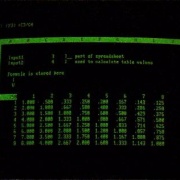
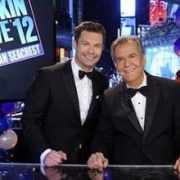

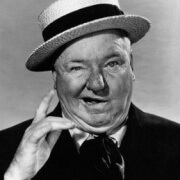
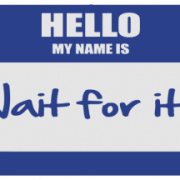
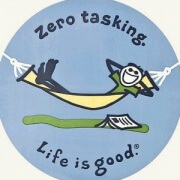


Leave a Reply
Want to join the discussion?Feel free to contribute!